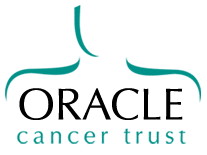
Despite the name, rare and less common cancers account for nearly half of new cancer diagnoses in England
They affect people of all ages, genders, ethnicities and locations. However, the nature of these conditions means that people can often face a range of issues, such as recognising symptoms, obtaining a diagnosis, receiving the most suitable treatment or getting appropriate levels of support.
‘Do You C Us?’ aims to unite Pfizer, rare cancer lobbying charity Cancer52 and its member charities to raise awareness of the challenges facing people living with rare and less common cancers and highlight the need for change to address these.
When we talk about ‘rare and less common cancers’ we actually mean all cancers beyond the four most cancers which are breast, prostate, lung and bowel. What is surprising for many people is that ‘rare and less common cancers’ actually account for nearly half of all new cancer diagnoses and over half of cancer-related deaths. So many are in fact not that rare at all.
It is always true with cancer that early diagnosis is key. Rare and less common cancers can present themselves in a variety of ways. Symptoms are often vague such as back pain, fatigue, weight-loss or nausea. Any new or unusual changes to your body should prompt a discussion with your doctor particularly if they are prolonged. More often than not, symptoms are not anything sinister, but if it is cancer, the chances of effective treatment are always higher when they are detected early.
‘Do You C Us?’ aims to raise awareness of the unique challenges faced by those living with rare and less common cancers and amplify their voice – we need to ensure all cancers are ‘seen’ as early as possible.
COVID and its effect on health services has impacted this visibility between patients and their healthcare professionals: we know people have held back from speaking to a GP or attending scans, not wanting to come forward about seemingly trivial symptoms like those often experienced with rare and less common cancers. This needs to change. We all need to work to ensure we are more aware and empowered to diagnose all cancers as early as possible.
Read more at the "Do you C us" website.

